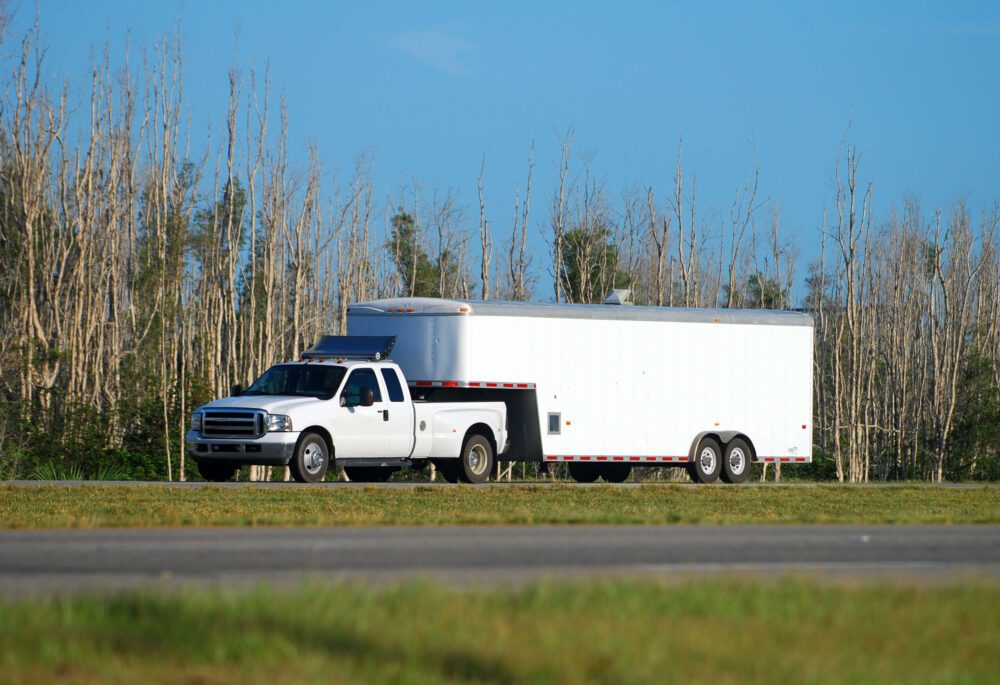How to Start a Non-CDL Hot Shot Business: A Comprehensive Guide

Hot shot trucking is an industry full of opportunities, especially for those looking to start a non-CDL hot shot business. If you’re ready to take the plunge, this guide will walk you through the essential steps and provide vital tips to set you up for success.
Step 1: Understand What a Non-CDL Hot Shot Business Entails
Before diving in, it’s crucial to understand what a non-CDL hot shot business is all about. As the owner, you’ll be transporting smaller, time-sensitive loads using lighter-duty trucks that don’t require a Commercial Driver’s License (CDL) to operate. The term “hot shot” refers to the urgent nature of these deliveries, often requiring fast turnaround times. Your business will cater to customers who need quick, reliable transportation for their goods.
Step 2: Secure the Right Equipment
Your business’s foundation lies in having the right truck and trailer. To operate a non-CDL hot shot business, your truck’s gross vehicle weight rating (GVWR) must be under 26,000 pounds, keeping you below the CDL threshold. When choosing your truck and trailer, consider factors like quality, efficiency, durability, and the types of loads you’ll be transporting. A reliable setup ensures you can meet your clients’ needs without interruptions.
Step 3: Register Your Business and Ensure Legal Compliance
Starting a business involves more than just having the right equipment. You’ll need to officially register your business with your state’s Secretary of State office and obtain a federal Employer Identification Number (EIN). This step is crucial for tax purposes and establishing your business legally.
Additionally, legal compliance is key. Hot shot trucking businesses are required to carry various types of insurance, including liability and cargo insurance. These policies protect your business from potential damages, accidents, and other liabilities. It’s also wise to consider occupational accident insurance for truckers to safeguard yourself and your employees in the event of work-related injuries.
Step 4: Obtain Your Carrier Authority
To legally transport goods across state lines, your business must obtain a Motor Carrier (MC) number from the Federal Motor Carrier Safety Administration (FMCSA). This number grants you the authority to operate as a carrier, and acquiring it can take time, so plan ahead. During this process, make sure you understand what severity weighting is. This can affect your business’s reputation and ability to secure contracts.
Step 5: Build Strong Relationships with Load Boards and Freight Brokers
Load boards and freight brokers will play a pivotal role in your business. These platforms connect shippers with carriers, helping you find loads to transport. Developing relationships with reliable freight brokers can lead to consistent work and help you avoid downtime. Establishing trust with these partners is crucial for long-term success.
Step 6: Price Your Services Competitively
Pricing your services correctly is key to sustainability. To do this, you need to understand all your costs, including fuel, maintenance, insurance, and registration fees. Knowing your non CDL hotshot insurance cost will help you set rates that cover your expenses and yield a profit. Competitive pricing ensures you stay attractive to customers while maintaining a healthy bottom line.
Navigating Towards Long-Term Success
Once your non-CDL hot shot business is up and running, focus on building a reputation for reliability and customer satisfaction. Timeliness is critical in this industry, so streamline your operations to ensure fast, efficient deliveries.
Regular vehicle maintenance is essential to prevent breakdowns and keep your trucks running smoothly. Additionally, stay updated on industry regulations and trends to remain compliant and competitive. For instance, understanding the nuances of hotshot trucking insurance can help you choose the right coverage and avoid costly mistakes.
Starting a non-CDL hot shot business can be a rewarding venture when done correctly. By paying close attention to the details, building strong industry relationships, and staying adaptable, you can carve out a successful niche in this dynamic market.




